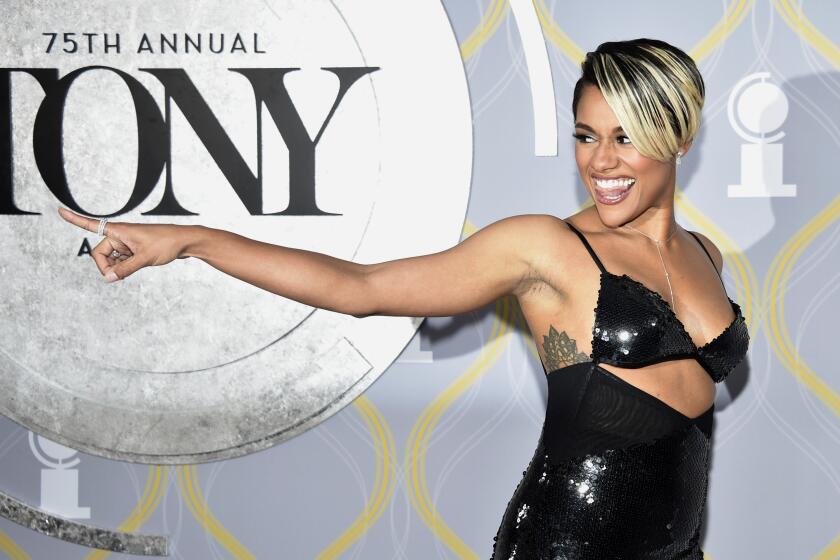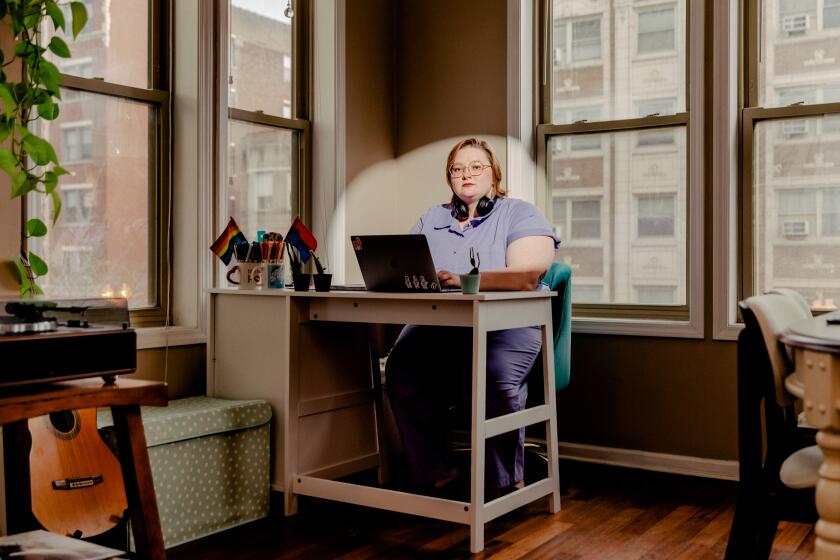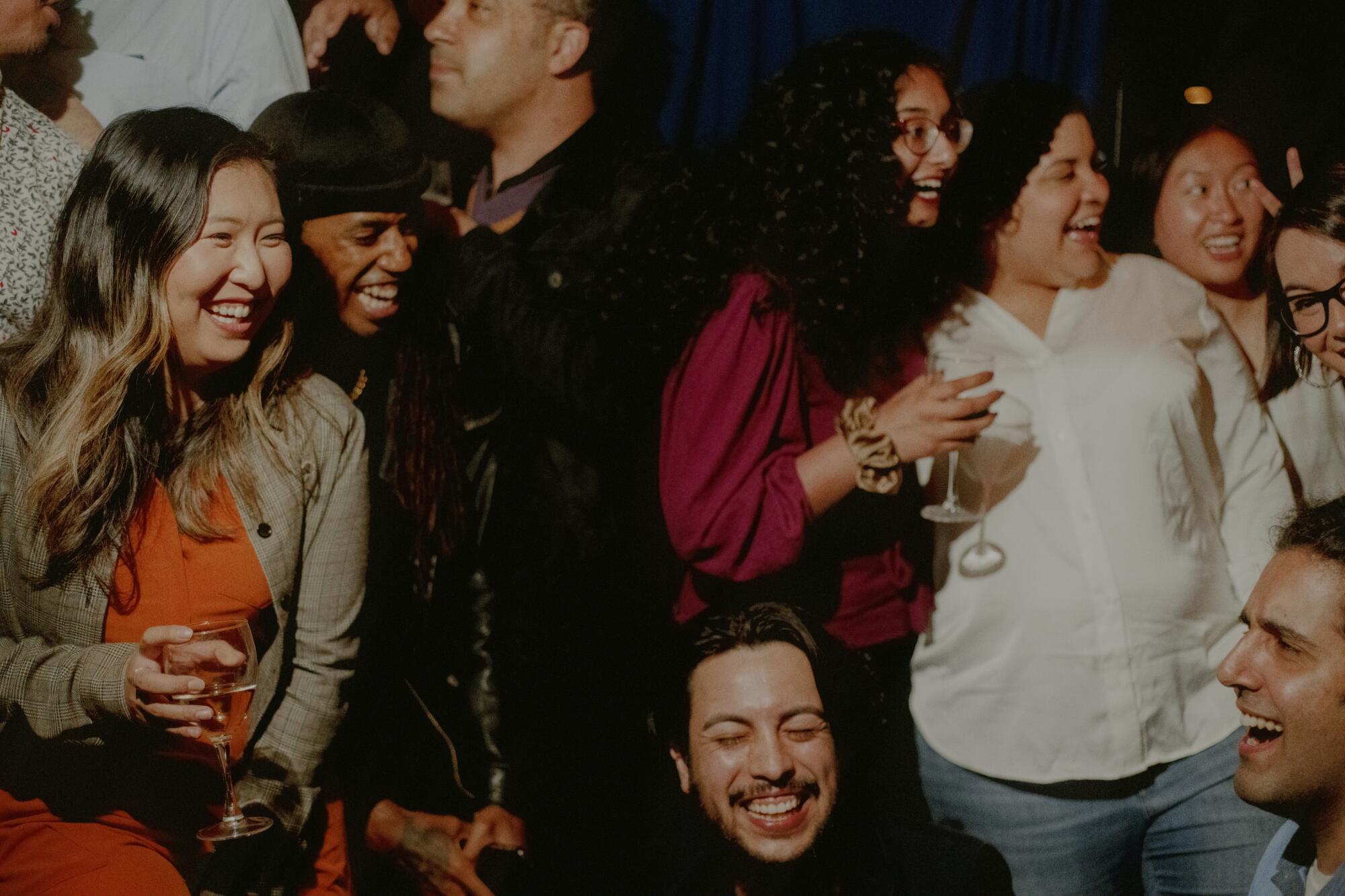
- Share via
Miranda Gohh discovered her dream role when she first saw “Fun Home” on Broadway. But she didn’t want to play a character onstage.
“I thought to myself, ‘How great is it that a producer is responsible for putting this together and making it all happen?’” she recalls of watching the Tony-winning musical in 2015. “The producer is the person who makes decisions on hiring, casting, marketing, everything necessary to bring this art to life, for thousands and thousands of people to see. That’s the person I knew I wanted to be.”
To be a commercial producer “is like being a CEO, with each show being its own startup,” says “Suffs” producer Rachel Sussman. But in comparison with other positions in the theater industry, the pathways to becoming a producer vary wildly and tend to be notably nebulous. The barrier to entry is particularly high for people of color; it is not uncommon for a Broadway production with a diverse cast and underrepresented creators to have an all-white producing team.
“When it comes to producing, there’s been a real iron curtain — a lot of withholding information, a lack of mentorship and an amount of gatekeeping,” adds Sussman. “It’s a job that’s become about who you know, and also requires you to be able to take on a lot of work for very little money for years, until the show has commercial life and there’s an opportunity for revenue. So, being independently wealthy and within a certain circle can make things a lot easier. But that’s also why this space has historically been very white.”
Gohh consumed articles and podcasts about producing theater, and kickstarted her career in the nonprofit sector. When the pandemic brought the industry to a collective pause — and theater was ubiquitously criticized for its systemic upholding of white supremacy — Gohh “started meeting other young BIPOC producers who also had ambitions to one day produce on Broadway,” she says. “We shared a frustration about the barrier to entry in commercial producing, and why some people get to hop over and others don’t. And I realized it’s really just a lack of education.”
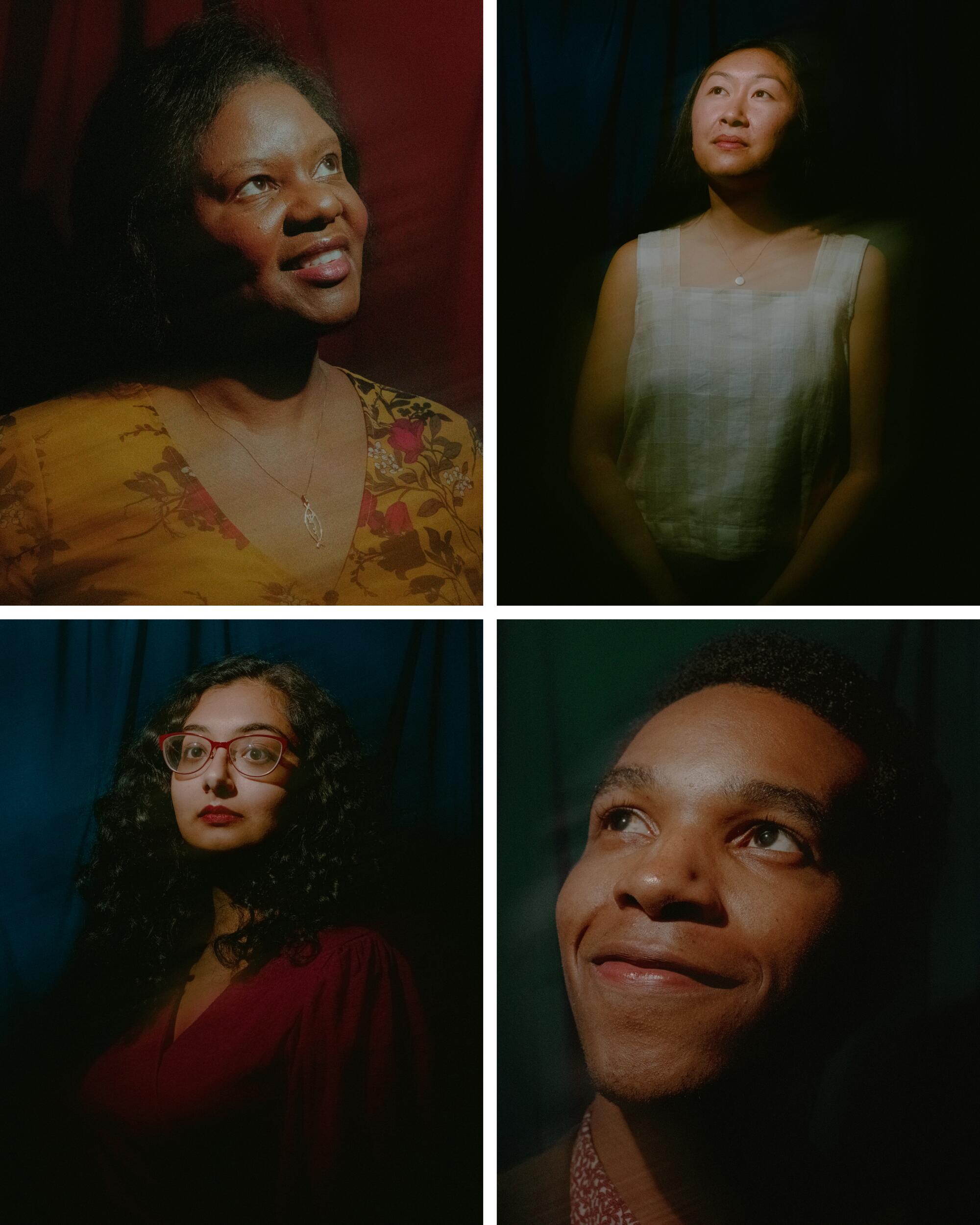
Gohh has since founded the program Theatre Producers of Color to diversify the decision makers bringing art to life on the Great White Way. In the name of accessibility, inclusivity and equity, its 10-week educational initiative on the fundamentals of commercial producing is offered virtually and — thanks to the support of the organization Broadway for All — completely tuition-free. Since the program’s launch, four cohorts have made their Broadway debuts and three have secured jobs with or through guest lecturers. Last month saw the graduation of its second class of 25 students, selected from hundreds of applicants from around the world.
“This is a group of people of color who are trying to shift not only the stories that we’re telling but also how it is that we’re telling those stories,” says “A Strange Loop” producer Rob Laqui, who assisted with the cohort selection. “The pause of the pandemic granted space for much-needed conversations, but if we don’t activate from those conversations, it’s too easy to go back to how things have always been. This is a very real way to give these new voices the tools to participate in this industry and shape how things can be in the future.”
Host Ariana DeBose led a round of applause for the artists and arts workers “who played a vital role in keeping Broadway shows open these past few months.”
Each week, an industry expert joins the group’s Zoom room and generously gives away the secrets of their trade: Nevin Law Group’s Doug Nevin walked through the logistics of negotiating rights agreements; the Shubert Organization’s Dessie Moynihan discussed the nuts and bolts of renting a venue; “Ain’t Too Proud” producer Rashad V. Chambers broke down the unique duties of executive producers; and Woolly Mammoth Theatre Company Artistic Director Maria Manuela Goyanes shared tried-and-true strategies for encouraging the wealthy to invest in the stage.
“We’re equipping people with the essentials needed to take that next step in their careers, but we’re also having frank and productive conversations about what we’re learning, and sometimes even challenging the information that’s being offered,” says Gohh of the sessions. “This industry has relied on systems that have been in place for decades, and they might have been successful and useful at a time, but many of them are no longer supporting our needs as producers today.”
Additionally, program mentor Sammy Lopez offered a radically transparent look at his in-progress production “Gun & Powder” as a case study for theater-making amid the pandemic. “Oftentimes, we only see the people we admire when they win the Tony Award or when their productions have recouped [their initial investment],” Lopez says. “We’re not here to only talk about success stories; we want to be honest about the process of building a show from its earliest stages of development, especially when trying to do so in this really tough moment when the industry does still feel a bit bleak.”
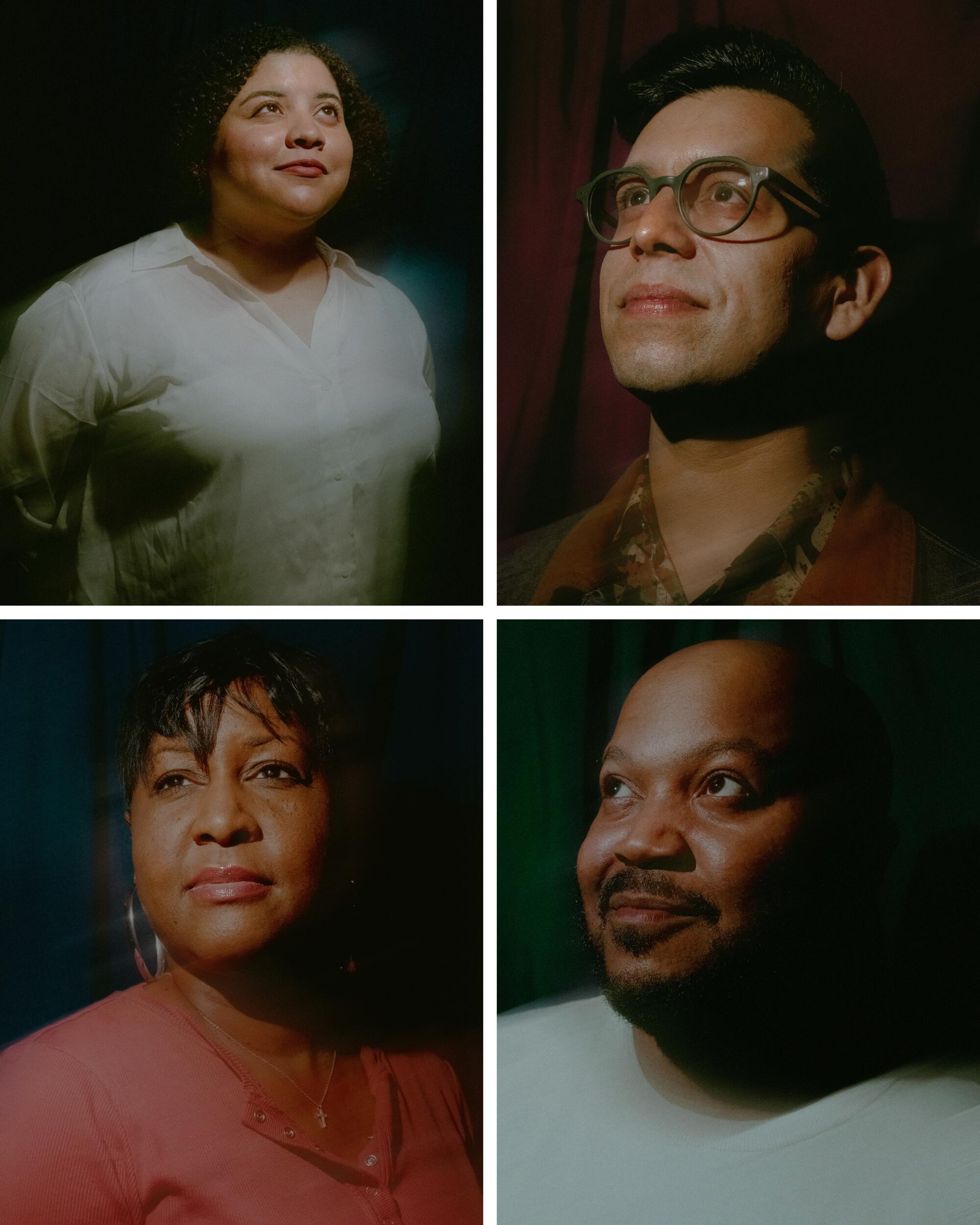
The program’s cohorts said that, along with the abundance of oft-coveted information and a newfound network of industry experts, they’ve benefited specifically from being in an affirming space with other producers of color. “So many of us are usually the only person of color in the room, and we’ve been conditioned to shrink into systems that don’t accept us and don’t embrace us,” says entertainment lawyer Ariana Sarfarazi. “Throughout this program, I was very often overwhelmed emotionally by the idea that I don’t have to shrink myself to be here — something I’ve done my entire life.”
Adds longtime nonprofit producer Shernā Ann Phillips, “I was blown away by the hurdles that producers in general, and certainly producers of color, have had to leap in order to get their work seen on theater’s biggest stages. To be able to ask Black commercial theater professionals very specific questions and get such rich insight from people who looked like me meant the world to me.”
Theatre Producers of Color is one of numerous educational initiatives that aim to address the industry’s racial inequity: The Black Theatre Coalition has partnered with Broadway Across America to provide fellowships in commercial theater administration, Black Theatre United is securing summer internships with live entertainment advertising and marketing agencies, and Baseline Theatrical launched an intensive program on general, company and stage management. Gohh hopes these efforts collectively establish and strengthen bonds between the next generation of theater makers.
The pandemic’s collective pause over the last two years had many reconsidering their commitment to the theater industry. Here are 10 of their stories.
“For a long time, the focus has just been on getting the job done — which, of course, is important,” she says. “But this work can be difficult, and it’s really hard to make a sustainable living. But I’ve found so much joy in the community of it all: being able to have authentic conversations about our trials and tribulations, learning that we’re not alone in our experiences and genuinely supporting each other in our endeavors.”
It’s already happening, says cohort Anant Das. “Meeting other BIPOC producers who are also hungry to learn and do the work to make this industry better has been the greatest gift I got out of this experience,” he says. “Not everyone in this program is planning to be the next big Broadway producer; some people have realized they want to take what they’ve learned and apply it to the legal field or licensing or another part of the theater industry.
“It’s so valuable, because the more people who have this knowledge, the more people can use that knowledge to really change things,” he adds. “And we’re ready to change things.”
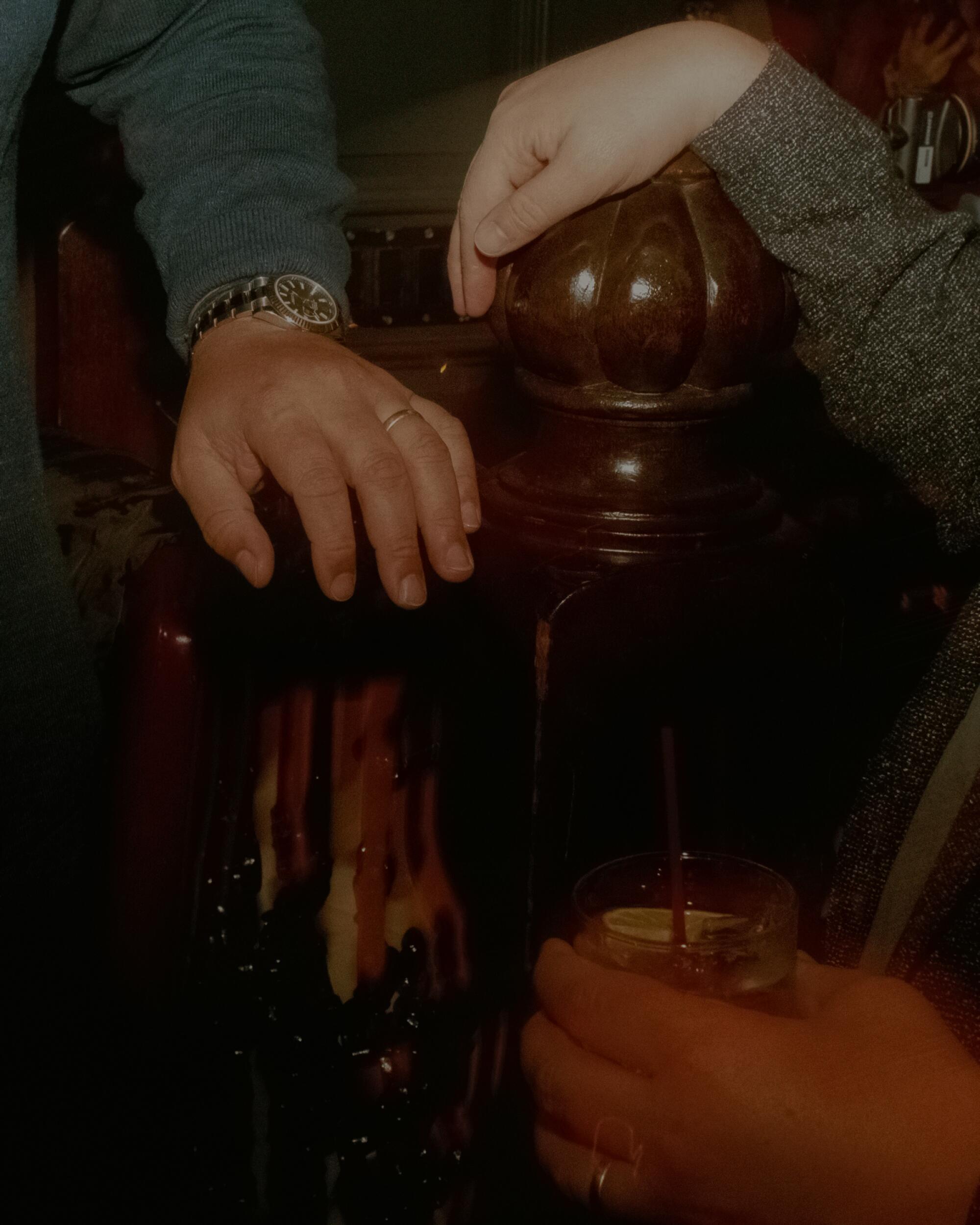
More to Read
The biggest entertainment stories
Get our big stories about Hollywood, film, television, music, arts, culture and more right in your inbox as soon as they publish.
You may occasionally receive promotional content from the Los Angeles Times.
